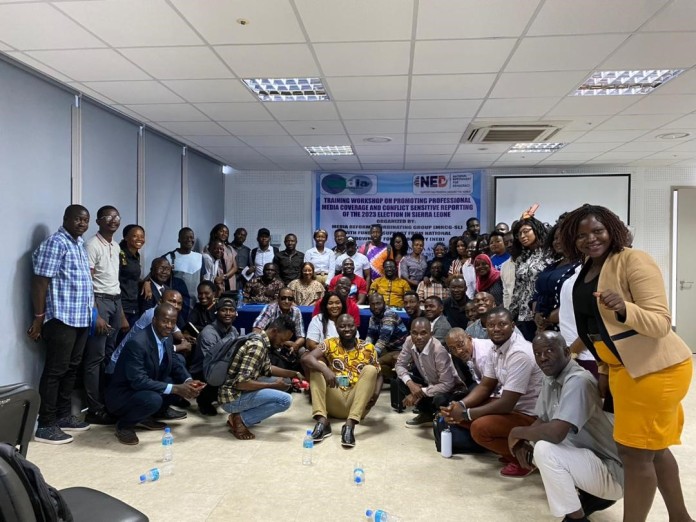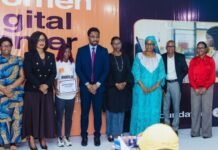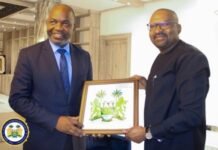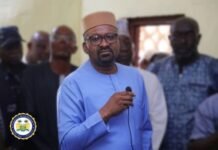By Amin Kef (Ranger)
Newspaper Editors, radio and television Station Managers and reporters benefitted from a 2-day training of trainers’ on ‘Promoting Professional Media Coverage and Conflict Sensitive Reporting of the 2023 Multi-tier Elections in Sierra Leone’conducted by the Media Reform Coordinating Group (MRCG), with support from the National Endowment for Democracy (NED).
The training, which commenced on March 22 and ended on the 23rd March, 2023 at the New City Council Hall in Freetown, was attended by journalists from media houses across Sierra Leone.
Dr. Francis Sowa ,National Director for MRCG, pointed out how the training seeks to train journalists, Editors and Station Managers in conflict sensitive reporting to enable them appreciate the need to engage in conflict sensitive reporting during the 2018 election campaign.
Participants were advised to avoid publishing and broadcasting hate messages and fake news, while he also encouraged them to make effective use of the ethical guidelines on reporting elections in the IMC Code of Practice and other media laws.
Acting Director of Information in the Ministry of Information and Communications, Emmanuel A.B Turay, appealed to journalists to serve their conscience and country. He said: “If you do your best in giving out factual reports you will be named on the next phase of our democracy. You should not be seen serving any region or tribe. Sierra Leone comes first.”
Chairman of the Independent Media Commission (MIC), Dr. Victor Massaquoi underscored the importance of using the IMC Code of Practice to ensure professionalism in media reports.
President of the Sierra Leone Association of Journalists (SLAJ), Ahmed Sahid Nasralla said the media is playing an instrumental role in influencing opinions and media practitioners must do that in a professional manner by promoting the ethics in the profession and to follow the legal frameworks.
Topics covered during the training were, Covering and Reporting on Elections, Legal Framework on Elections, Conflict-Sensitive Reporting, IMC Guidelines on Elections Reporting, Hate Speech, Fake News and Social Media, Reporting on Women and Persons with Disabilities, Managing Information and Expectations and Safety and Protection of Journalists were topics that were covered during the training.
Other major topics discussed during the training include; Why Facts Matter: The Importance of Fact Checking; How and Why False Information Spreads, Tips for Spotting False Information Online and Online Fact-Checking and Verification tools.
Participants from the different regions were able to talk about the challenges they face whilst covering the electoral processes. They were given guiding principles by the different facilitators who went through their topics in an interactive manner.




